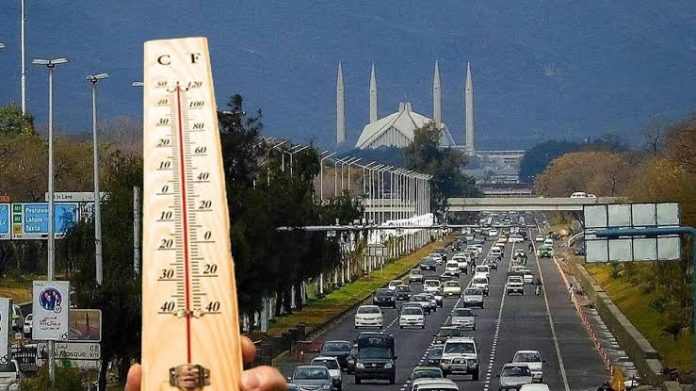Unprecedented heat has gripped parts of Gilgit-Baltistan, as the towns of Chilas and Bunji recorded their highest-ever temperatures, the Pakistan Meteorological Department (PMD) confirmed on Saturday.
According to official data, Chilas reached a scorching 48.5°C, breaking its previous record of 47.7°C set on July 17, 1997. Bunji followed closely with 46.1°C, surpassing its earlier record of 45.6°C, which was last seen on July 12, 1971.
The PMD has warned that this unusual and extreme rise in temperatures could have dangerous consequences for the region’s fragile mountain environment. “These persistent high temperatures over northern areas may accelerate snow and glacier melt, triggering Glacial Lake Outburst Floods (GLOFs) and flash floods in vulnerable valleys and surrounding regions during the upcoming week,” the statement said.
Over 7.1 Million People Vulnerable
The Ministry of Climate Change estimates that more than 7.1 million people living in Gilgit-Baltistan and Khyber Pakhtunkhwa are vulnerable to climate-related hazards — especially floods and glacier lake bursts.
The region is home to hundreds of glaciers and snow-fed rivers that are now under threat due to rising global and regional temperatures. Sudden melting can cause glacial lakes to overflow or burst, leading to fast-moving floods that destroy homes, crops, roads, and livelihoods within minutes.
A Warning Sign of Climate Crisis
Experts say these record-breaking temperatures are not just isolated events but part of a larger climate pattern affecting Pakistan. Northern areas, previously known for their cooler summers, are now experiencing heatwaves once considered impossible for high-altitude regions.
Environmentalists are urging the government to increase glacier monitoring, improve early warning systems, and prepare emergency response teams. Local communities in at-risk valleys must also be informed and supported ahead of possible weather disasters.
The growing intensity of heat and its devastating side effects — including glacier floods, landslides, and water shortages — underline the urgent need for climate adaptation measures in Pakistan’s northern belt.
As Pakistan continues to experience the harsh realities of a warming planet, these recent events in Chilas and Bunji serve as a clear signal: the climate crisis is no longer a distant threat — it is happening now.


